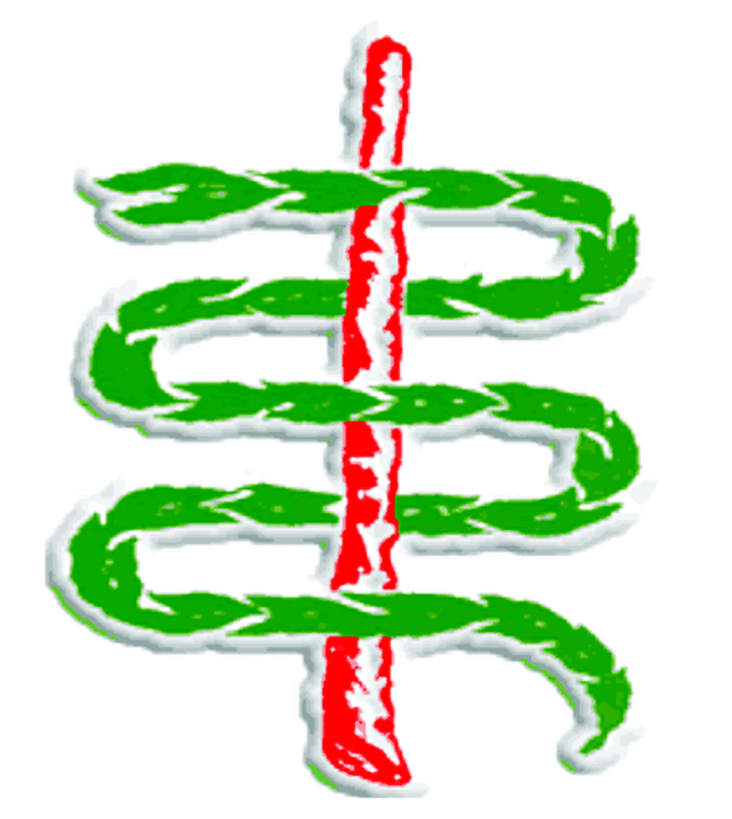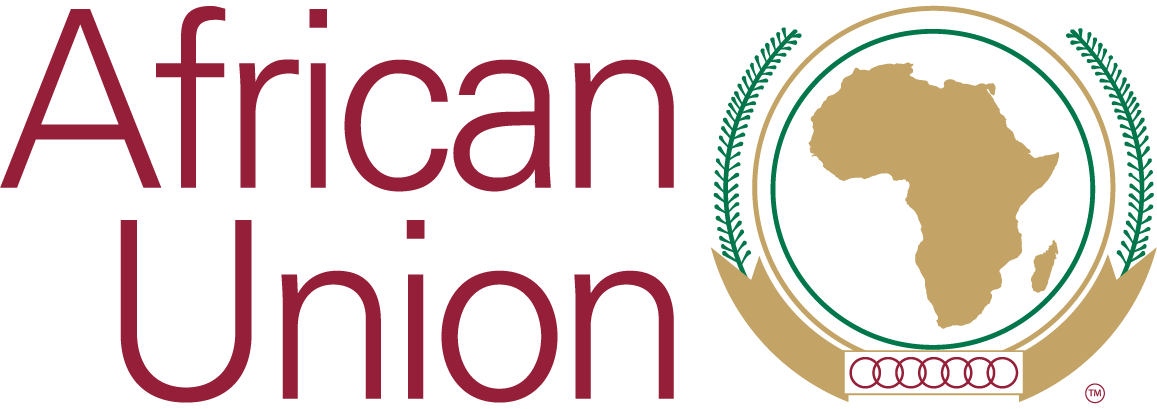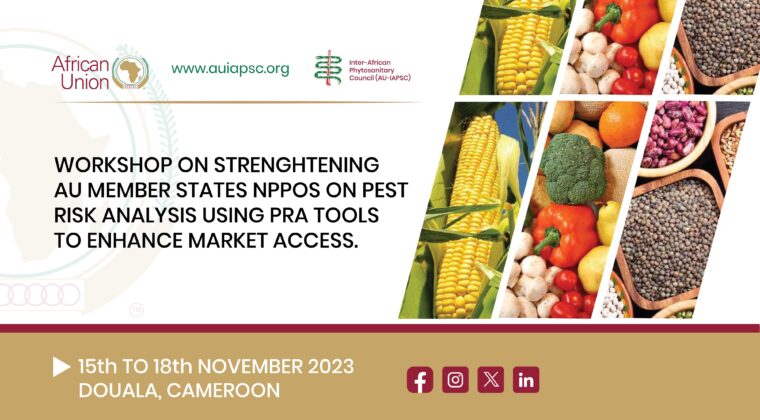African member states drilled in Pest Risk Analysis for trade facilitation
Over 20 plant health scientists and experts from African member states have convened in Cameroon’s economic capital Douala, for a specialized training workshop on the Pest Risk Analysis (PRA) for trade facilitation across the continent.
The training has been organized by Inter-African Phytosanitary Council of the African Union (AU-IAPSC) as part of its mandate to coordinate and implement decisions relating to phytosanitary activities across the continent.
PRA is a conventional scientific tool that provides countries with the ability to protect their plant resources from pests and fulfil their international obligations by supporting various types of national programmes.
It also therefore provides countries with justification for trade bans and other non-tariff measures.
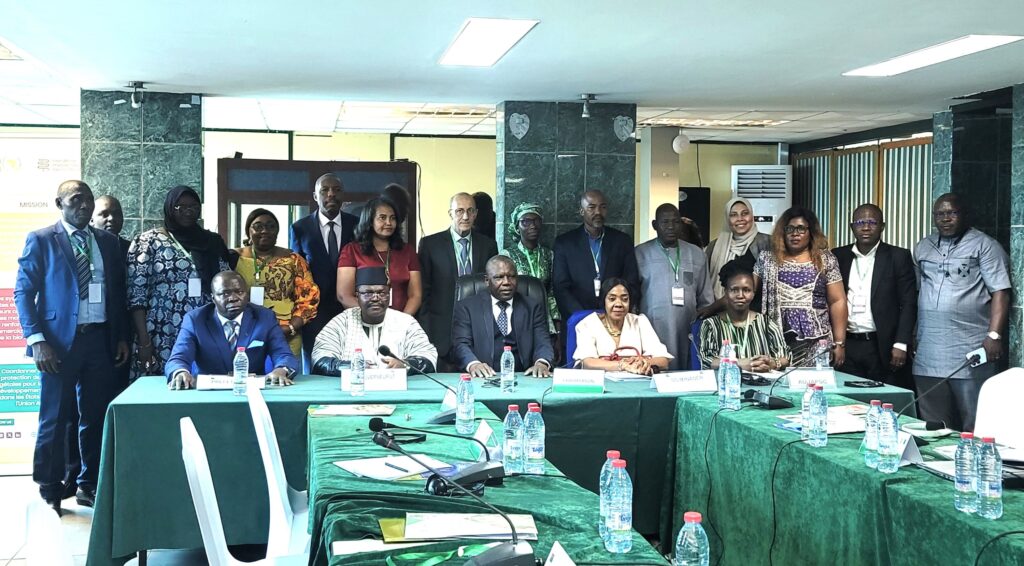
Minister of Agriculture for Cameroon Mr Gabriel Mbairobe (centre) with Cameroon government officials, African Union officials and some participants, after officially opening the PRA training in Douala – Cameroon.
AU-IAPSC Coordinator Dr Saliou Niassy in his opening remarks said the 4-day training will build the capacity of the participating member states through National Plant Protection Organizations (NPPOs) on the steps of the PRA process, the necessary resources and the importance of having usable national data.
He said PRA resonated well with the objectives of the Plant Health Strategy for Africa (PHSA) whose successful implementation will also depend on, among many factors, capacity building for research, pest monitoring management strategies.
“We are also looking at imparting member states with knowledge and information on how to gather and update feedback on the latest information on PRA and to create strong networking among them,” he said.
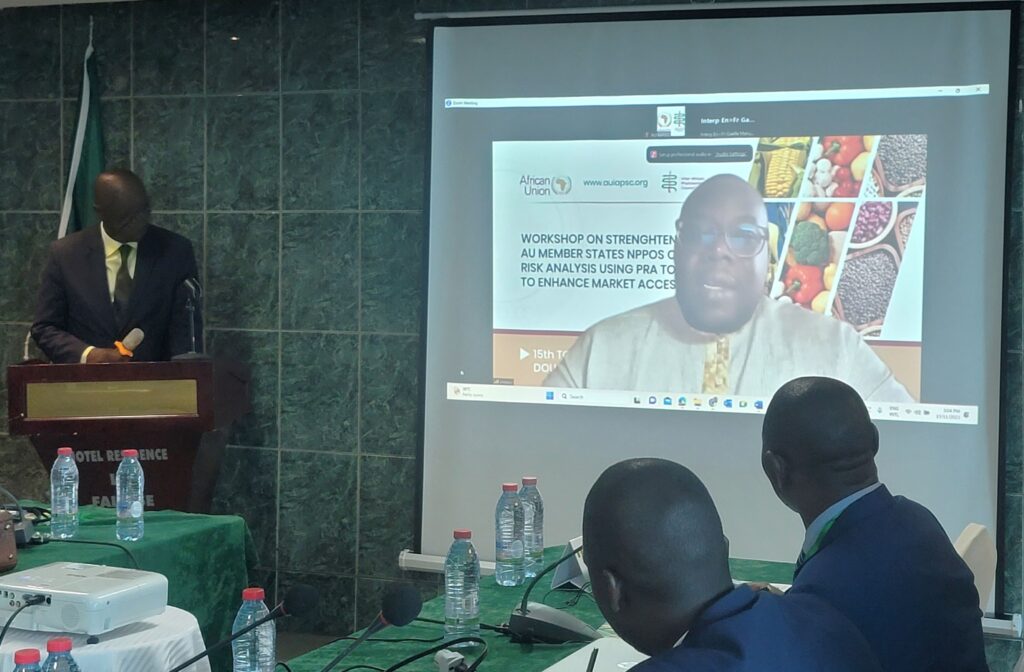
AU-IAPSC Coordinator Dr Saliou Niassy virtually addressing the PRA delegates at the beginning of the PRA training.
Beyond capacity, the training would provide member states with the necessary knowledge to enable them adhere to phytosanitary conditions outlined by World Trade Organisation (WTO) and International Plant Protection Convention (IPPC) to facilitate international markets while sustaining food security.
Minister of Agriculture for the Republic of Cameroon Mr Gabriel Mbairobe officially opened the training, stressing that the PRA training is essential not only for effective pest control for farms and agricultural premises, but also for economic purposes.
“Pest species are cause for major concern, not only due to the potential loss of revenue due to crop damage but, if left untreated, they can also cause significant damage to machinery, equipment and property as well,” he said.
He worried over current statistics that indicate plant pests and pathogens damage the agriculture severely, endangering food security and causing production losses of 20%–40%, which represent around US$ 40 billion per year worldwide.
The training will also provide an opportunity for NPPOs to share best practices and implementation strategies around pests and diseases.
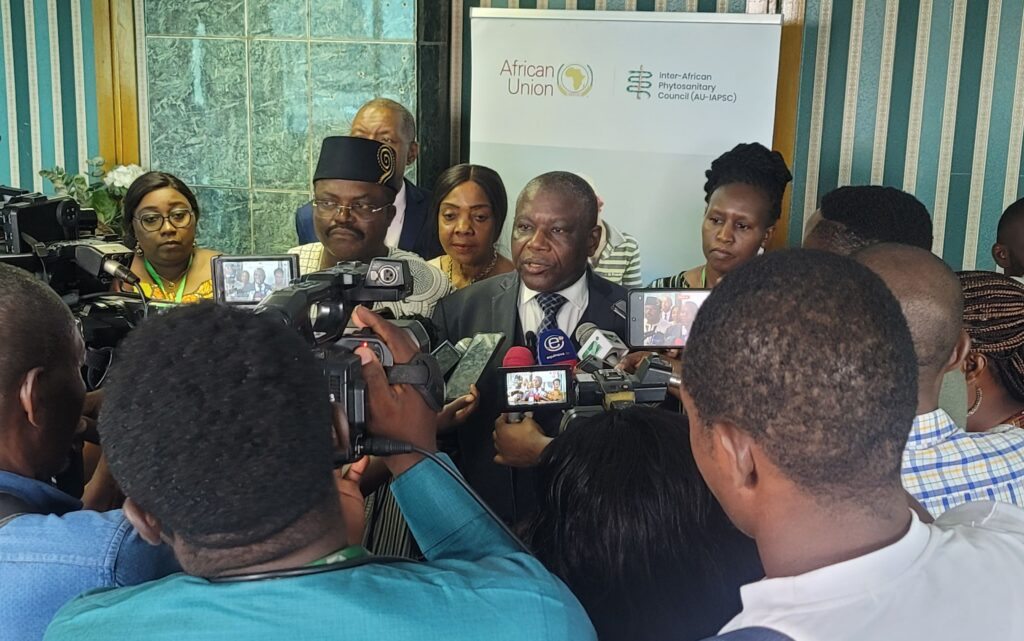
Members of the media interviewing Minister of Agriculture for Cameroon Gabriel Mbariobe after opening the PRA training.
Member states available for the training include DRC, Comoros, Cote d’Ivoire, Egypt, Gabon, Guinee Conakry, Kenya, Madagascar, Malawi, Mali, Mauritania, Morocco, Namibia, Niger, Senegal, Tanzania, Zambia and the host Cameroon.
Practical training sessions on PRA tools and Horizon Scanning Tool by experts from Centre for Agriculture and Bioscience International (CABI) are also part of the training.
